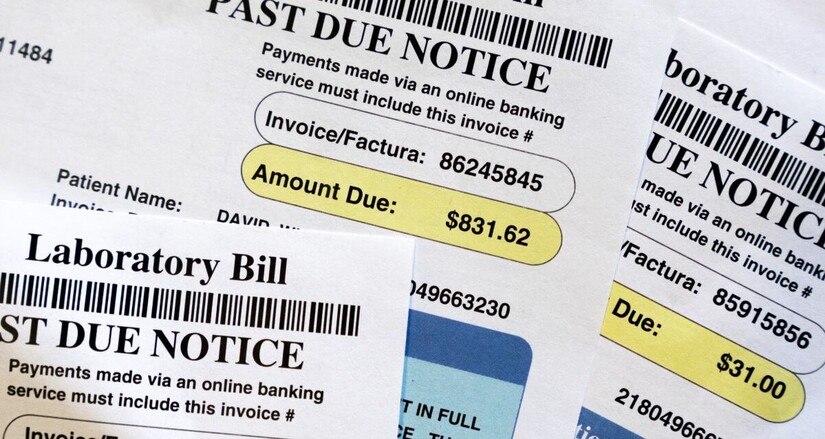Image


The Minnesota Debt Fairness Act went into effect on October 1.
LAKEVILLE, Minn. — A federal policy finalized last week by the Consumer Financial Protection Bureau (CFPB) will ban medical bills on credit reports and prohibit lenders from considering applicants' medical information when applying for a loan.
The federal push follows in the footsteps of a recently enacted Minnesota law prohibiting medical providers from reporting unpaid medical bills to credit bureaus. The Minnesota Debt Fairness Act went into effect on October 1.
It's a policy Walt Myers of Lakeville was strongly advocating for after losing his wife Sue to breast cancer in 2019 and inheriting $135,000 of her medical debt.
"My wife had just passed away," Myers recalled. "Between that and doing a celebration of life and consoling my kids and grandkids; having this huge medical debt hanging over my head—it was the last thing I needed."

"I lost a lot of sleep," Myers went on. "I can only imagine people out there that have medical debt like that. I'm sure that they're every bit as stressed and losing sleep like I did."
According to the CFPB, the federal rule will "remove an estimated $49 billion in medical bills from the credit reports of about 15 million Americans," boosting each person's credit score by an average of 20 points.
"That can make a difference for a lot of people who are on the border between fair and good credit, and good and excellent credit," said Kim Miller, the senior program manager at Lutheran Social Service of Minnesota Financial Counseling.
Miller said the CFPB's ruling may help streamline credit reporting for people across the country, including Minnesotans. "With anything when it comes to reporting on credit bureaus, it is our responsibility as consumers to make sure things are correct," she said. "So the fact that it's happening now nationwide should make our credit reports hopefully more accurate so that it's not just, 'Oh, is this person living in this state, this person living in another state,' regarding reporting purposes."
Miller recommends using this federally-regulated website to check individual credit reports.
The CFPB said its research shows medical debt is a poor indicator of someone's capability of repaying a loan, as medical bills can often be confusing and convoluted.
According to Undue Medical Debt, a national nonprofit organization dedicated to eliminating personal medical debt, medical debt is the leading cause of bankruptcies across the country.
Lawsuits have been filed against the CFPB's ruling. The Association of Credit and Collection Professionals (ACA) stated in a complaint that suppressing information about a person's medical debt will "increase the cost of medical care and force more upfront payments," having broad impacts on healthcare providers and patients. The ACA alleges the CFPB is acting outside of its regulatory authority.

Myers sees the policy as progress. "You can't inherit your spouse's medical debt, that's progress. It's not going on your credit report when you do have medical debt, that's progress. We'll see where the next step forward comes, but I've been very, very proud to be a part of that, however small it might be."
SOURCE: KARE 11